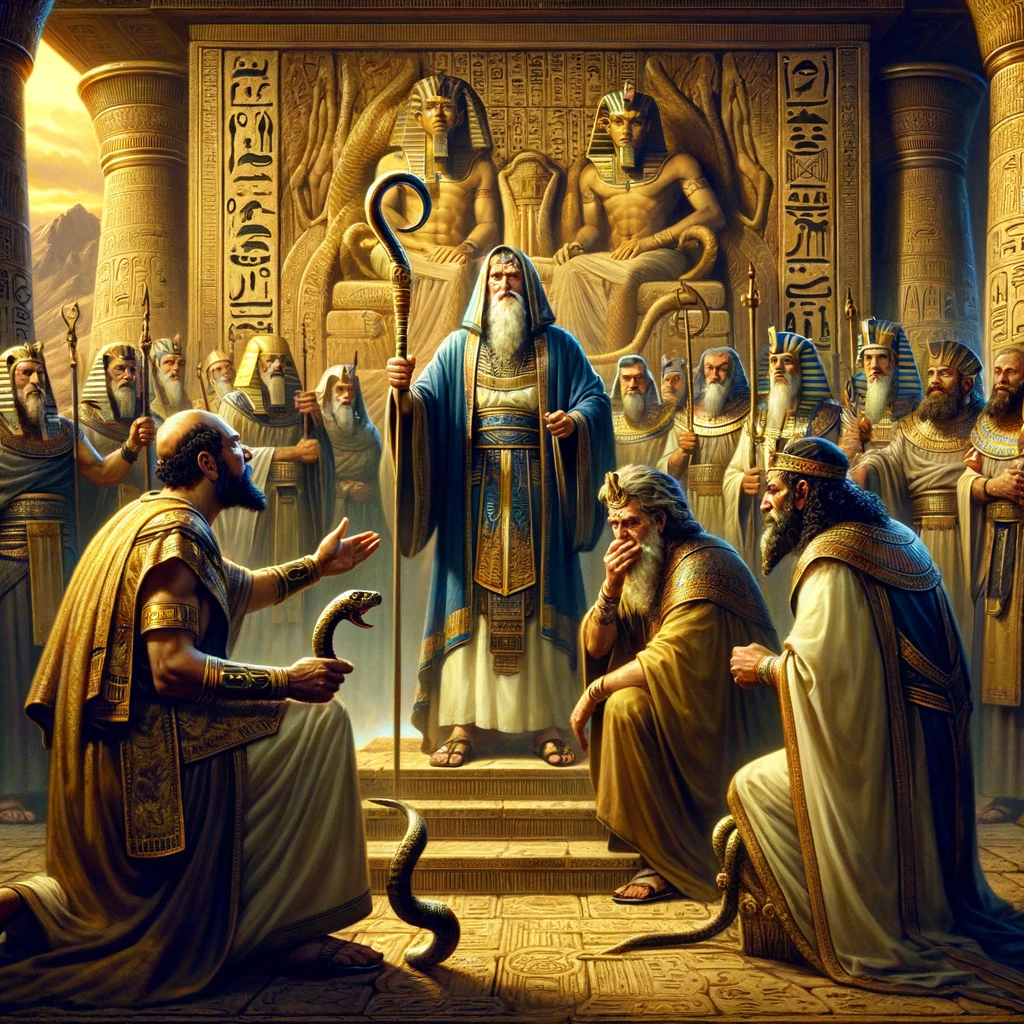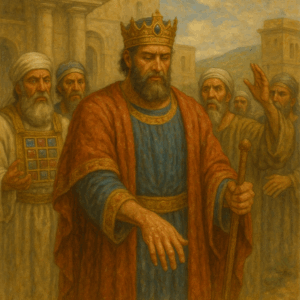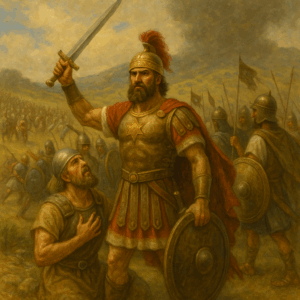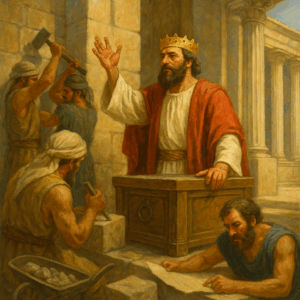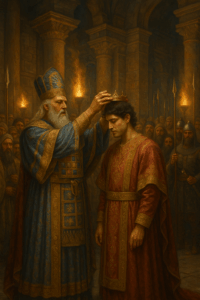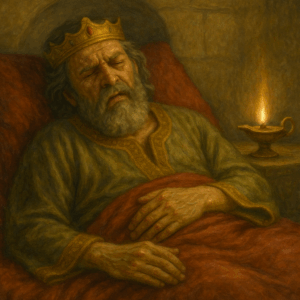Introduction:
Exodus Chapter 7 marks a critical juncture in the biblical narrative of the Israelites’ journey from slavery to freedom. In this chapter, we witness the commencement of a divine drama that unfolds through Moses and Aaron’s confrontations with Pharaoh, setting the stage for the miraculous signs and wonders that are to follow.
Moses and Aaron’s Divine Commission:
The chapter begins with God reaffirming His mission to Moses and Aaron. Moses, often plagued by self-doubt, is reassured of his role as God’s spokesperson, while Aaron is appointed as his prophet. This divine commissioning underscores a theme central to Exodus: the power of faith and obedience in the face of adversity.
The First Encounter with Pharaoh:
Moses and Aaron’s first encounter with Pharaoh is a pivotal moment in the chapter. When Aaron throws down his staff before Pharaoh and his court, it transforms into a serpent – a sign of God’s power. However, Pharaoh’s heart remains hardened, as his magicians replicate the miracle, setting the stage for the escalating conflict between divine authority and human obstinacy.
The Onset of the Plagues:
Exodus 7 also sets in motion the first of the ten plagues – the turning of the Nile’s waters into blood. This plague is not just a demonstration of divine might but also a symbolic judgment against the Egyptian gods and a direct challenge to Pharaoh’s presumed divinity. The Nile, the lifeline of Egypt, becoming a source of death and decay, is a powerful image that resonates throughout the narrative.
Themes of Power and Resistance:
One of the key themes of this chapter is the dichotomy of power and resistance. The miracles performed by Moses and Aaron represent the omnipotence of the God of Israel, while Pharaoh’s resistance exemplifies the arrogance and futility of opposing divine will. This tension is a recurring motif in Exodus, highlighting the struggle between faith and doubt, obedience and rebellion.
Modern Application and Reflection:
Exodus 7 has profound implications for modern readers. It invites reflection on our responses to divine directives and the nature of our faith in the face of challenges. The narrative encourages believers to trust in a higher power, even when faced with seemingly insurmountable obstacles.
Conclusion:
Exodus Chapter 7 is more than a historical account; it is a chapter rich in symbolism, showcasing the beginning of God’s mighty act of deliverance for the Israelites. It challenges us to examine our own faith journeys, our responses to divine calling, and our trust in God’s power over the seemingly impossible situations in our lives. As we reflect on this chapter, let us draw strength and inspiration from the steadfast faith of Moses and Aaron and the unassailable power of God that triumphs over all forms of earthly authority.
